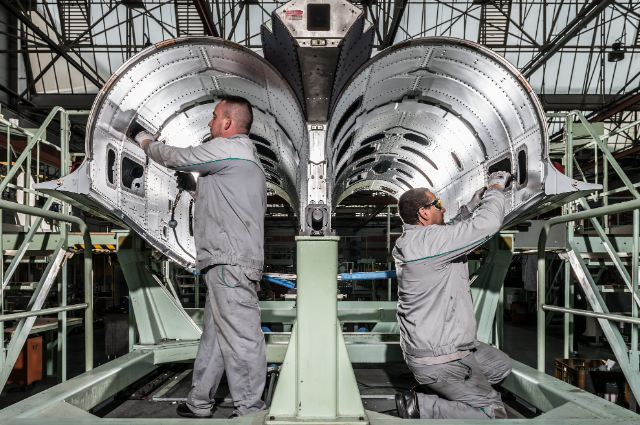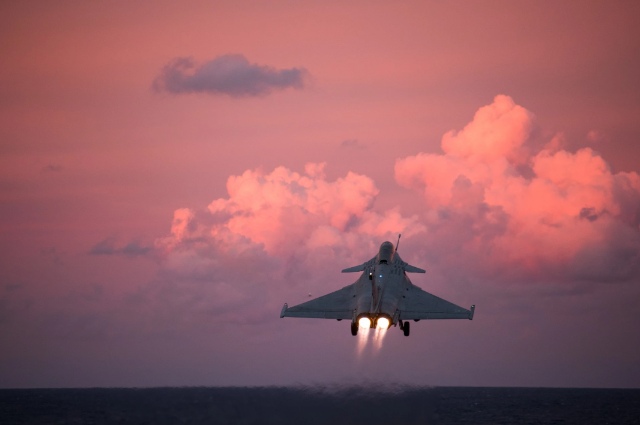An agreement between France's Dassault Aviation and India's Tata Advanced Systems (TASL) will see the Rafale fighter aircraft produced in India for the first time outside of France. This essential collaboration, announced by the companies, signifies a major leap forward for India's defence manufacturing ambitions.
Boosting Domestic Production and Exports
India, currently the world's largest arms importer has been actively pursuing a strategy to enhance domestic defence production and significantly increase its defence exports. This push has already produced impressive results with exports jumping 12% to $2.76 billion in the fiscal year ending March. The new partnership with Dassault directly supports this national objective.
A Dedicated Facility in Hyderabad
Under the terms of the agreement, Tata Advanced Systems will establish a dedicated production facility in Hyderabad, a southern Indian city in order to manufacture key structural sections of the Rafale. This move is a testament to India's growing capabilities in advanced manufacturing and its commitment to becoming a global hub for defence production.
Production Timeline and Output
The companies project that the first sections will roll off the assembly line in the 2028 financial year. Once fully operational, the Hyderabad facility is expected to achieve a significant output that will be delivering upto two complete fuselages per month. While the specific financial value of the deal was not disclosed, nor was it explicitly stated whether the finished products would be solely for domestic use, TASL clarified on social media that the fuselages would be "for India and other global markets," indicating a broader export potential.
Strengthening India's Air Power and Strategic Autonomy
The Indian Air Force currently operates 36 Rafale fighters and India recently finalized a deal in April to acquire an additional 26 naval versions of the jets for $7 billion with deliveries expected by 2030. France stands as India's second-largest arms supplier that is further highlighting the strategic importance of this partnership.
This initiative is a crucial component of India's broader efforts to modernise its military and help in domestic weapons production. This focus is particularly vital for strengthening India's defenses against its neighbours, Pakistan and China. The recent clashes with Pakistan including reports of downed Indian aircraft (though details remain disputed), underscore the critical need for a robust and self-reliant defense industry. While a U.S. official confirmed at least one downed Indian aircraft was a Rafale during last month's clashes with Pakistan and India's chief of defense staff acknowledged losses, the specifics remain sensitive. Nevertheless, this new manufacturing agreement positions India to enhance its air power and achieve greater strategic autonomy in a challenging geopolitical landscape.
India's Aerospace Rise: A Deeper Dive into the Dassault-Tata Partnership
The recent statements from the leadership of Dassault Aviation and Tata Advanced Systems Limited (TASL) highlight moments in India's journey within the global aerospace industry. Far from being just a business agreement, this collaboration signifies a strategic deepening of India's role in the international supply chain, particularly concerning the production of the advanced Rafale fighter jet.
Strengthening the Supply Chain: Dassault's Perspective
Eric Trappier, Chairman and CEO of Dassault Aviation has clearly stated that this development represents a "decisive step in strengthening our supply chain in India." This isn't just about expanding operations; it's about making the Indian supply chain an integral and more robust part of Dassault's global manufacturing strategy. By broadening their network of local partners with TASL identified as a key player in the Indian aerospace sector, Dassault aims to achieve a critical objective which is a successful ramp-up of the Rafale production. This implies a significant increase in the pace and volume of manufacturing. Furthermore, Trappier emphasized that with Dassault's ongoing support, these Indian partners will be equipped to meet the stringent quality and competitiveness requirements that are essential for such sophisticated defence platforms. This commitment to quality and cost-effectiveness underscores Dassault's long-term vision for its Indian operations.
India's Growing Capabilities: Tata's Vision
Echoing this sentiment from the Indian perspective, Sukaran Singh, Chief Executive Officer and Managing Director of Tata Advanced Systems Limited, characterized this partnership as a "significant step in India's aerospace journey." The announcement that the complete Rafale fuselage will be produced in India is a testament to the escalating confidence in TASL's capabilities. This particular detail is crucial as the fuselage is a core structural component of the aircraft by requiring advanced manufacturing techniques and precision. Singh's statement directly links this increased responsibility to the "deepening trust in Tata Advanced Systems' capabilities" and the demonstrable "strength of our collaboration with Dassault Aviation." More broadly, he highlighted how this development reflects the "remarkable progress India has made in establishing a modern, robust aerospace manufacturing ecosystem that can support global platforms." This signifies that India is not just a market or a recipient of technology, but a competent and reliable manufacturing hub capable of contributing to globally significant aerospace projects.
Towards Economic Independence and Global Integration
Beyond the immediate manufacturing benefits, Dassault's broader intention for this collaboration is clear to boost India's standing in the international aerospace manufacturing network. This initiative positions India as a more significant and integrated player on the global stage, moving beyond a more limited role. Alongside, this partnership actively advances India's main objective of economic independence. By nurturing original manufacturing capabilities and becoming a key part of international supply chains, India reduces its reliance on external sources and thereby enhancing its self-sufficiency in a critical strategic sector.
This collaborative endeavour between Dassault Aviation and Tata Advanced Systems Limited therefore, is more than just an industrial agreement; it's a strategic alliance that propels India further into the global aerospace manufacturing landscape, strengthening its economic autonomy while contributing to the successful future of the Rafale program.
. . .
References:


